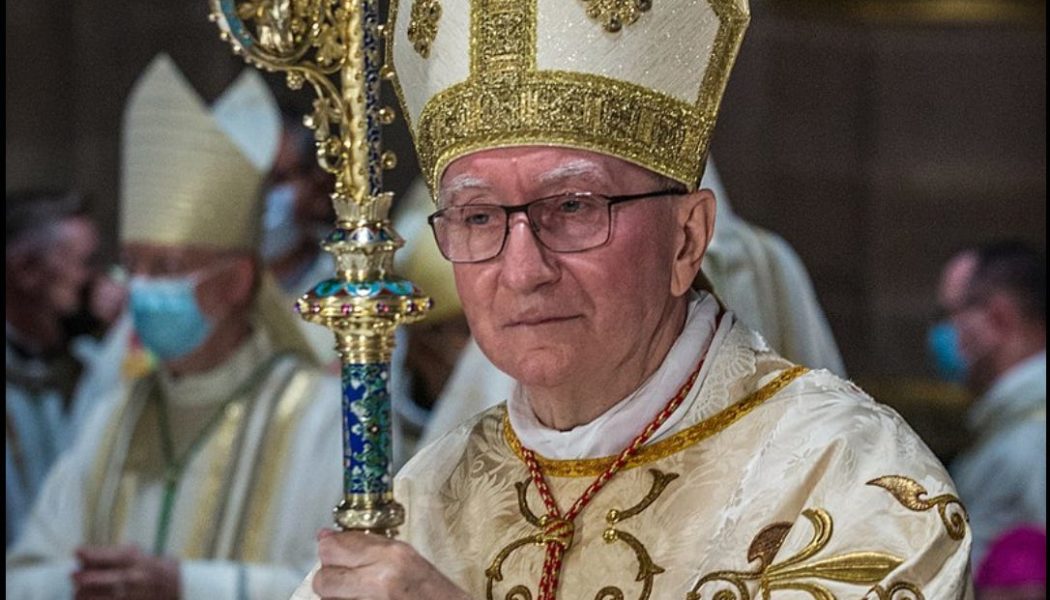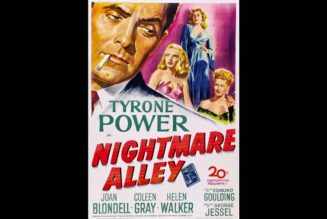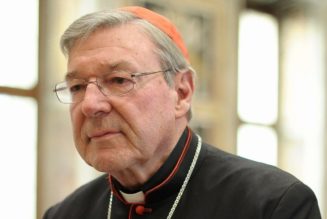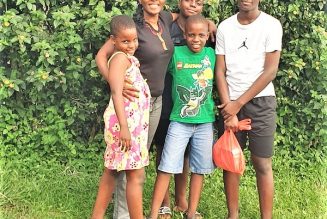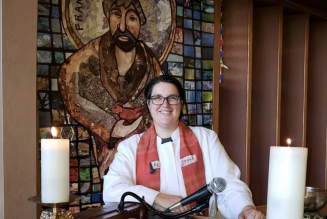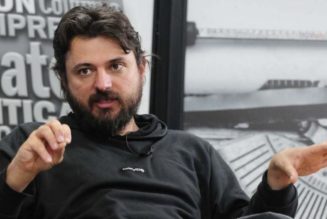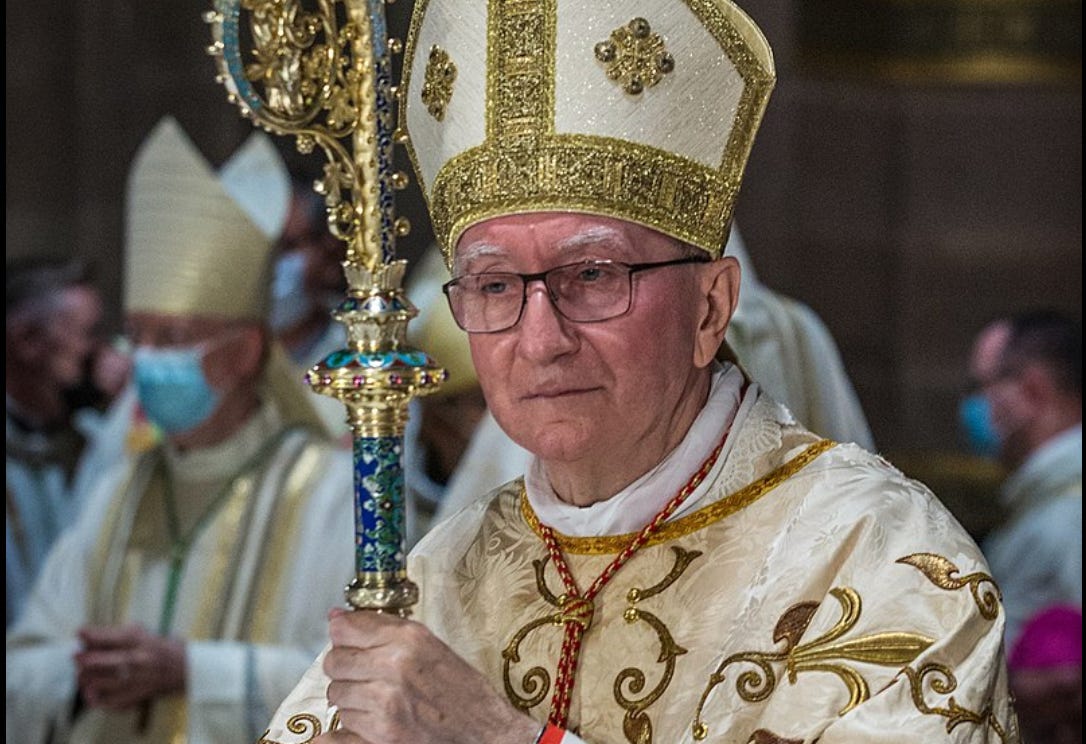
As the synod on synodality proceeds at the Vatican, bishops and lay participants have reportedly weighed in on a variety of ways by which the synod might propose changes to Catholic doctrine, or that elements of Catholic teaching be at least reexamined and deemphasized, in response to the pope’s call to see the Church become more “synodal” — and more welcoming to Catholics disaffected from the Church.
But while reports pile up of participants with views at odds with Catholic teaching, sources have told The Pillar that one voice in the synod has been a loud advocate for a vision of synodality that places Catholic doctrine at its center: Vatican Secretary of State Cardinal Pietro Parolin.
Given his ordinary reputation for diplomatic reserve, the notion that Parolin has been outspoken at the synod might come as a surprise. And it comes at an unusual time for the cardinal — as Parolin seems both privately and publicly to be moving from Pope Francis’ inner circle.
Whatever his intervention might mean for the synod, the more interesting question might be about another Vatican assembly — what could an outspoken Pietro Parolin mean for the next papal conclave?
—
As the Francis papacy moves past its ten-year mark, Vatican-watchers have begun to discuss in earnest how the election of the pope’s successor might play out. More quietly, cardinals and bishops have begun to have the same kinds of conversations.
There is an emerging school of thought that after three “foreign” popes, the College of Cardinals might be eager to elect an Italian to the position again, for the stability in office that would seem to imply.
Further, the Italian block of cardinals might have outsize influence in the next conclave, because the Italians know each other, while a large number of the College of Cardinals, those appointed from far-flung corners of the globe, have had few opportunities to come together, let alone to form opinions of each other.
Among the Italians, the three most obvious choices are Cardinal Angelo De Donatis, the cardinal vicar of Rome; Cardinal Matteo Zuppi, the archbishop of Bologna, and Parolin, who has been Francis’ Secretary of State since 2014.
It’s not clear that there is a front-runner.
De Donatis has been plagued in recent months by the public backlash against his defense of disgraced Jesuit Marko Rupnik.
Zuppi, president of the Italian bishops’ conference, has been given charge of Francis’ signature diplomatic project, the pope’s efforts to secure a peace agreement between Ukraine and Russia. But at the same time, the cardinal has been frequently criticized for a perceived doctrinal “flexibility” that makes it hard to know where he stands.
Meanwhile, while Parolin remains the second-most influential officeholder in the Church — at least on paper — it seems clear that his stock with Pope Francis has fallen in recent years.
In late 2020, the Secretariat of State was stripped of its assets and investment portfolio, together worth billions of euros, in light of the charges of criminal financial misconduct in the secretariat.
More recently, Parolin’s diplomatic staff were “frozen out” of the drafting process of this month’s papal exhortation, Laudate deum, despite their work with international leaders on the subject of climate change.
At the same time, Pope Francis tapped another figure — Zuppi— to lead his efforts to aid in a Ukrainian-Russian peace process. It is remarkable to diplomacy watchers that the pontiff would task someone other than his secretary of state with the Church’s highest-profile diplomatic effort.
Since the pope made that appointment, according to diplomatic sources, some Vatican ambassadors have begun to regard Zuppi as the kind-of de facto secretary of state, a rival to the influence and position of Parolin.
But if Parolin is seen as increasingly out-of-favor with Francis, that shouldn’t be taken as a sign that a cadre of cardinals won’t favor him in the next conclave — or that Zuppi’s popularity with the pope will necessarily translate into support.
On that front, Parolin’s reported intervention at the synod could work in his favor.
According to sources close to the assembly, Parolin made a “strong and clear” intervention during the synod meeting — which is not open to the public — urging that participants emphasize fidelity to divine revelation, as interpreted by the Church’s magisterium, in the course of their conversations.
The cardinal’s remarks left an impression on members of the assembly, sources told The Pillar.
To some Vatican-watchers, that might come as a surprise.
Parolin is more well-known these days for diplomatic remarks, even controversial ones, than for theological excursus. But that reputation comes with the kind of ecclesiastical career he’s had.
Since his 1980 ordination to the priesthood, Parolin has been a career Vatican diplomat — in Nigeria, Mexico, Venezuela, and in the halls of the Secretariat of State, Parolin’s agenda has been the pope’s agenda, over the course of three successive pontificates. Little is known publicly about the cardinal’s own theological commitments or perspectives — Parolin has never even been a pastor, with a record of parish bulletin notices or homilies to perhaps give insight into how he thinks about the Church.
With a strong showing at the synod — especially for the stability of doctrinal orthodoxy — Parolin might show to a group of cardinals that he has a number of favorable attributes for a pope: He knows how the Vatican works, he has experience with the Church around the globe, and — given his intervention — he apparently has no desire to see prolonged debate over settled doctrinal issues.
Taken together, it is possible that Parolin might be seen by some cardinals as an excellent follow-up to the Francis papacy.
—
Of course, Parolin has a lot to overcome.
When it comes to weighing up what cardinals look for in a prospective pope, Parolin could be argued to face a double handicap. .
At 69 years old, he might be younger than some conclave voters might like, if they are looking for a short “reset” pontificate to follow the lengthy and often controversial reign of Francis.
On the other hand, Parolin is also a cancer survivor who has faced lingering questions about his health, even as he gets on with one of the most demanding jobs in the Church, short of actually being pope — those looking for a steady, longer-term candidate might worry that he’d be coming to the job already tired out.
There are questions about his day job, too. Senior officials from his secretariat are facing trial right now for serious financial corruption, and several have alleged that Parolin was either aware of their activity, or negligent in his oversight.
Further, his detractors say, Parolin has been a key player in a much-criticized agreement with Beijing, and that the cardinal has embraced a realpolitik strategy that puts pragmatics over Providence. But friends of the cardinal say consistently that Parolin is a “man of the Church” — doctrinally orthodox, pastorally astute, and eager for evangelization.
Both, of course, can be true. And it is unclear how much of the Beijing deal is Parolin’s own doing, and how much is driven by a desire of Pope Francis to see regularized the situation of the Church in China.
In either case, Parolin has not been shy in recent months about the limitations of the deal, and of the way it’s been interpreted in Beijing.
And whatever the cardinal’s role in the Vatican financial scandal actually is, it is possible that cardinal-electors will overlook it, or fail to understand it even, because of the complexity of the case, and the way it’s been prosecuted.
So could Parolin become pope? It seems increasingly likely.
Does he want to be pope? No one who does would ever admit it.
Would he be what cardinal electors expect? That’s hard to say.
But a Vatican secretary of state has not been elected pope since Pius XII in 1939. It remains to be seen whether a future conclave will think the time has come for another.
Comments 39
Services Marketplace – Listings, Bookings & Reviews
